Hej, hallo, ciao,Aquest blog és una eina per la gent qui vol aprendre altres idiomes y por los que son fruity. Soy británico, y soy un poco fruity, hablo Inglés fluidamente. Só sei Castelhano (Espanha) e Catalão (Balear e Central) do nível alto; Français et Italien a l’intermédiaire. Per Polacco, Portoghese e tedesco… sono molto basso. No tingueu por, envia’m una correcció quan faig errors, o si quisierais charlar envíame algo aquí en mis publicaciones, o bien en mis mensajes. Gràcies per lleure I hope we can chat about llenguatge i lingüística junts ^^
Don't wanna be here? Send us removal request.
Text
It's so cuteeee my Spanish coworker was telling me about her daughter's and stuff and they're only wee totes and one of them watching Dora or something from mexican television and was so excited that they were speaking Spanish and she could understand it (they're bilingual but yea) and she was translating all the sentences back to her mum and that just sound so cute 🥺
8 notes
·
View notes
Text
this video has been going around for a while but the English subtitles didn't match the energy of the spoken French at all. i had to fix it.
reblog to spread this version
93K notes
·
View notes
Text
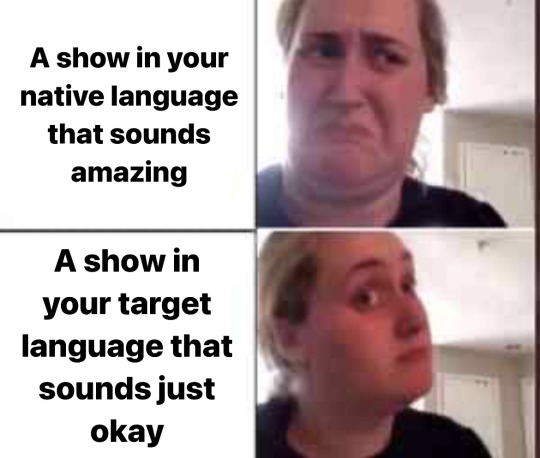
574 notes
·
View notes
Text

Les ordiphones....? Dites moi que je ne suis pas la seule à n'avoir jamais vu ce mot auparavant
166 notes
·
View notes
Text
Call me a cunnilinguist the way I pronounce her clitoral approximant
138 notes
·
View notes
Text
ok, this is amazing. I found a great site with short stories in 34 languages!
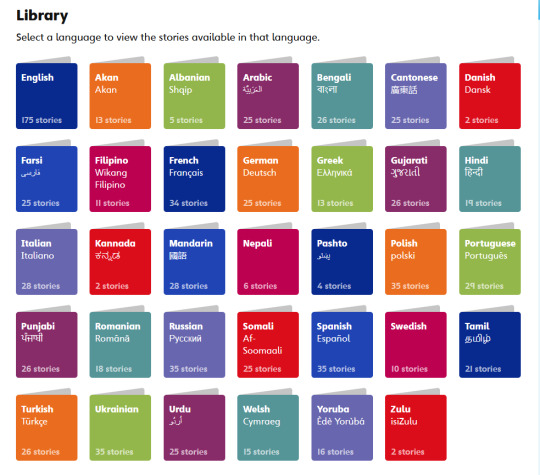
"WorldStories is a growing collection of stories from around the world. The collection includes retold traditional tales and new short stories in the languages most spoken by UK children.
We are adding new stories, translations, pictures and sound recordings every week. So keep coming back to enjoy new content!"
#resources#language learning#langblr#language resources#langblr resources#language#languages#polyglot#french#español
2K notes
·
View notes
Photo

Languages of Anatolia and its surroundings from the year 750 to 2000.
137 notes
·
View notes
Text
If you study ANY foreign languages and post about your study logs/journey frequently, please interact with this post because I'd love to follow more langblrs!
#langblr#studyblr#language study#study#spanish langblr#frenchblr#spanish#french#español#learning french#català#catalan#catalán#langue d'oc#occitanie
243 notes
·
View notes
Text
how would you translate (into english) "se me hace bola"? (meaning: something overwhelming or that causes you anxiety or discomfort)
(e.g. Se me hace bola esta asignatura)
9 notes
·
View notes
Text
Why are written French and spoken French so different?
A really interesting answer to a question on Quora, from Andrew MacKenzie. Quora is sometimes weird about making you log in to read things, but I think this link will work.
The answer describes several areas where written and spoken French are different, and it’s worth reading in full, but I want to focus on discourse configuration. Here’s the first bit of what MacKenzie says about it:
Written French word order is based on argument structure, i.e. the role the nouns play in the verb’s action: Subject verb object. In spoken French, however, word order is much more dependent on discourse structure— the role the nouns play in the speech context. In English we can move things around for this kind of reason, but it isn’t common. For instance, to show contrast, we can put objects before subjects: (4) Coffee, I like. Tea, I don’t. This displacement is accompanied by a sharp change in intonation— the contrasted item gets emphasized. We can also set nouns apart as topics (this is called topicalization) (5) Your brother, he can run a mile in five minutes! Again, in English this isn’t common. And in written French, it isn’t common either. But in spoken French, it’s the normal way to make a sentence. (4 again) Le café, j'adore. Le thé, moins (5 again) Ton frère, il peut courir un km six en cinq minutes! In spoken French, it’s also common to put several nouns in front. Note that with topicalization (5) you have to have a pronoun in the sentence that refers to any arguments that you’ve topicalized. One sentence that I remember well: (6) Moi, les flics, je les aime pas. I don’t like cops [Lit: Me, cops, I don’t like ‘em] The use of nous, on for “we” is common, too, if you’re interested in syntax-semantic mismatches (on is 3rd singular morphologically) (7) Nous, on va au ciné ce soir. We’re going to the movies tonight [Lit: Us, one is going to the movies tonight] It’s also normal to put things after the sentence. This is usually done to emphasize the last constituent, notably the predicate. The emphasized part is pronounced with more loudness and higher pitch. (8) Il est con, ton frère. Your brother’s a jerk. [Lit: He’s a jerk, your brother ] The next one was some advice from my mother-in-law (9) Faut en boire, du café, le matin. You have to drink coffee in the mornings [Lit: have-to some drink, coffee, the morning ]
(Full text)
He mentions that he can’t speak for Belgium or Canada, but as a fluent second-language French speaker living in Montreal, I can definitely say that discourse configuration is very common here, and I hadn’t actually realized it was quite so common in France.
I also get the sense that it’s more acceptable to drop the object in contexts where you definitely can’t do so in English. For example,
(10) Je peux goûter? Can I try some? [Lit.I can taste? ]
I could also just not be hearing the objects though, since the /l/ is often deleted in casual speech for the object pronouns le, la, l’, les, which makes them almost inaudible. Any French speakers from anywhere want to weigh in?
#frenchblr#learning french#apprendre le français#linguistics#french#français#written french#spoken french#romance languages#language study#language learning#learning languages#languages#language#language stuff#langblr
3K notes
·
View notes
Text
languages are so fucking fascinating. just been reading about pitch accent, tonal languages, stress timed and syllable timed languages.
100 notes
·
View notes
Text
French Slang Masterpost
Abbreviations
Slt (Salut) = Hello Bcp (Beaucoup) = A lot Dsl (Désolé) = Sorry Stp (S’il te plait) = Please Dac (D’accord) = Okay Qd (Quand) = When Qqch (Quelque chose) = Something Qqn (quelqu’un) = Somebody
Internet words
Mdr (Mort de rire) = Lol Ptdr (Pété de rire) = Lmao Vdm (Vie de merde) = Fuck my life Tg (T’as gueule) = Shut up BG (Beau gosse) = Hot guy Tkt (T’inquiête) = Don’t worry
Common sayings
Bref = In short Ouais = Yeah Putain, Merde = Shit C’est de la merde = It’s crap Ça craint = It sucks Ça me soûle = It’s annoying me C’est relou (C’est lourd) = It sucks C’est ouf (C’est fou) = It’s crazy C’est trop cool = It’s awesome C’est le bordel = It’s a mess Je suis claqué = I’m exhausted Je me casse = I’m getting out of here Je m’en fou = I don’t care Tu rigoles = You’re jocking Tu te fous de ma gueule = You’re kidding me Tu fais quoi? = What’s up? Laisse tomber = Just forget it Fais gaffe = Be careful Péter un plomb = Going crazy Avoir la flemme de faire quelque chose = To be too lazy to do something
Unformal verbs
Bouffer = To eat Taffer = To work Roupiller, Pioncer = To sleep Kiffer = To have a crush on someone Etre vénère (Etre énervé) = To be annoyed Se marrer = To laugh
Unformal nouns
Un mec = A guy Une meuf = A girl Un pote = A friend Une bagnole = A car Une baraque = A house Un pieu = A bed Un bouquin = A book Une clope = A cigarette Le fric, le blé, le thune, l’oseille, le pognon = Money Un flic, un keuf = A cop Un gosse, un gamin = A kid Un boulot, un taf, un job = A job La fac = University Le bahut = High school
The above phrases/words can be used in almost every informal situation, but don’t use them in your essays or in any kind of normal writing!
18K notes
·
View notes
Text
How to learn a language the fun (and easy) way:
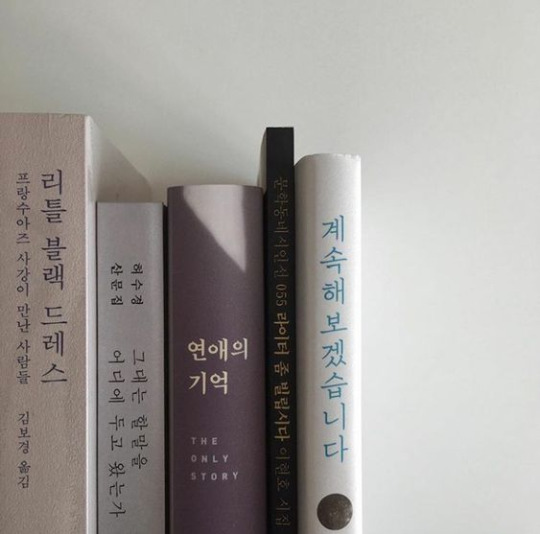

1 - Watch native films/dramas
This is not only fun, but will also help your ears adjust to the speed and tones of native speakers. You will start to differentiate individual words and sounds. This is not a voice over or language teacher speaking - these are natives who speak rapid-fire, and with lots of slang thrown in. You'll also learn about the country's culture, etiquette rules and general way of life.
Matt vs Japan (YouTube) learnt Japanese through watching anime. You can also learn through native resources like manga. And this is how babies learn naturally - through an endless stream of language input. Eventually they recognise word, intonation and grammar patterns.
For free Korean/Japanese/Chinese dramas check out Viki, or you can find a variety of languages on Netflix, or even YouTube (good for Russian ones!)
2 - Find a translated version of books/films
If you know a book series by heart, find the translated version and go through them slowly. Since you already know the plot, you'll associate new words with their meanings much faster. You can also do this with films you've watched repeatedly, like the Disney classics.
3 - Chat with natives
Use apps like HelloTalk, Tandem or Hilokal to chat (for free!) with native speakers around the world. Honestly, this is the fastest way to learn, especially because they use everyday expressions/slang. It's also the most fun way because you're essentially just making foreign friends.
4 - Browse the internet in your TL
YouTube, twitter, Tumblr, forums, whatever. Google a recipe in Spanish. Check the news in German. Create a YouTube account specifically for Arabic. You can also make Spotify playlists in your TL, and listen to them instead of your usual native ones.
5 - Create content
Compose a song
Keep a diary
Start a blog
Create a YouTube channel
Write a passionate essay
Write a short story
...in your target language.
6 - Latch onto something cultural you love
Fall in love with Russian literature and start wading your way through Crime and Punishment. Get obsessed with Hindi Bollywood movies, or Italian opera, or Japanese anime/manga. Research into your TL country's history in that foreign language. Binge Korean dramas or kpop idol interviews. Anything, as long as you're passionate about it.
Hope that helps, and let me know if you have any other ideas :)
2K notes
·
View notes
Text

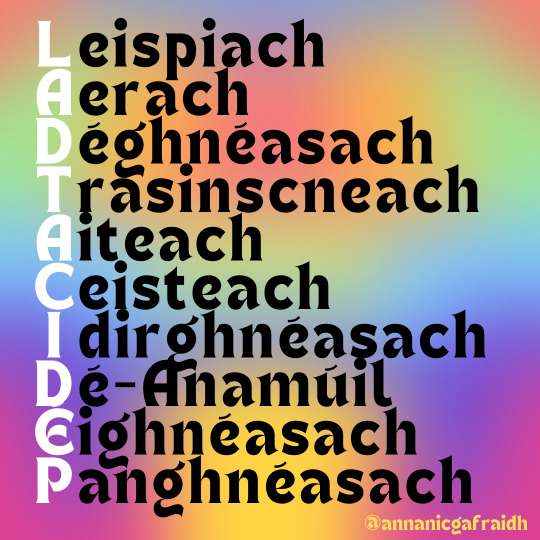
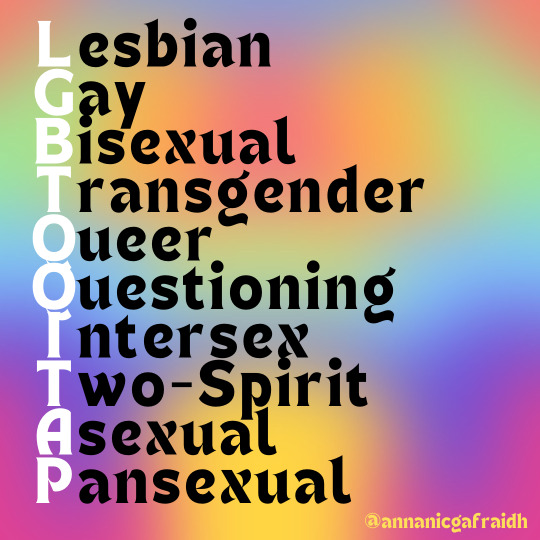


135 notes
·
View notes
Text
Simple vs compound tenses
There are simple tenses (one word) and compound tenses (at least two) in French that are connected to each other. Here’s a little explanation.
1. We take the auxiliary:
Avoir (to have) for most verbs, être (to be) for some of them (naître - to be born, rester - to stay, aller - to go…)
2. We conjugate the auxiliary:
in the present tense to build the perfect tense (passé composé),
in the imperfect tense to build the pluperfect (plus-que-parfait),
in the future tense to build the future perfect (futur antérieur),
3. We add the past participle of the verb.
Perfect tense: j’ai réussi, tu as réussi, il/elle/on a réussi, nous avons réussi, vous avez réussi, ils/elles ont réussi (v. réussir : to win)
Pluperfect tense: j’avais réussi, tu avais réussi, il/elle/on avait réussi, nous avions réussi, vous aviez réussi, ils/elles avaient réussi
Future perfect: j’aurai réussi, tu auras réussi, il/elle/on aura réussi, nous aurons réussi, vous aurez réussi, ils/elles auront réussi

250 notes
·
View notes
Text
/f/ : Unvoiced Fricative :: /v/ : Unvoiced Vricative
2K notes
·
View notes









